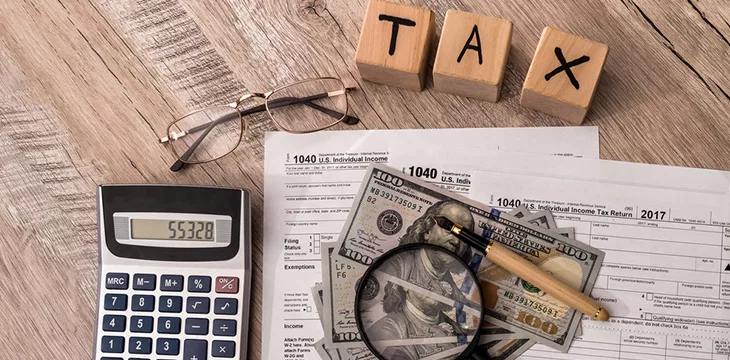|
Getting your Trinity Audio player ready...
|
The Internal Revenue Service (IRS), the agency responsible for tax collection in the United States, announced it had extended the feedback deadline for its proposed digital asset tax reporting rules until November 13.
Under the new rules proposed by the U.S. Treasury Department in August, digital asset brokers, including exchanges and payment processors, will have to tell the IRS about users’ trades of digital currencies like Bitcoin.
The latest regulations are part of a broader crackdown on tax evasion in the digital currency industry and stem from the $1 trillion Infrastructure Investment and Jobs Act (2021).
The proposed rules would oblige ‘digital asset middlemen,’ including brokers, trading platforms, payment processors, and certain wallet providers, to report gross proceeds for all digital asset sales and exchanges from January 1, 2025. Brokers must also report information on gains and losses from January 1, 2026.
A new filing, “Form 1099-DA,” will help taxpayers determine what they owe, in theory removing the need for complex calculations. Brokers must send necessary forms to both digital asset holders and the IRS.
Form 1099-DA will “help taxpayers determine if they owe taxes, and… avoid having to make complicated calculations or pay digital asset tax preparation services in order to file their tax returns,” said the Treasury Department when announcing the proposed rules.
“Under current law, taxpayers owe tax on gains and may be entitled to deduct losses on digital assets when sold, but for many taxpayers, it is difficult and costly to calculate their gains.”
The proposed regulation would “align” digital asset reporting with that of other asset types, said the Treasury, ensuring that “everyone plays by the same set of rules.”
The idea that all asset classes should be treated equally when it comes to tax laws didn’t go down universally well in the digital asset community, with some of the habitually regulation shy voicing their displeasure.
Paul Grewal, chief legal officer of embattled digital asset exchange Coinbase (NASDAQ: COIN), took to X (formerly Twitter) on October 18 to urge anyone who “supports American innovation” to co-sign a letter opposing the regulations.
“The proposed regs go well beyond the congressional mandate to establish tax reporting rules on par with those for traditional finance, putting digital assets at a disadvantage and threatening to harm a nascent industry when it’s just getting started,” said Grewal.
Meanwhile, in a contrasting letter dated October 10, seven U.S. senators urged the Treasury Department and IRS to move faster on implementing the rules, warning that waiting until 2026 would potentially lead to $50 billion in lost annual tax revenue.
Bernie Sanders (I-Vt.), Elizabeth Warren (D-Mass.), Richard Blumenthal (D-Conn.), Angus King Jr. (I-Maine), Gary Peters (D-Mich.), Sheldon Whitehouse (D-R.I.), and Brian Schatz (D-Hawaii) suggested that the Treasury’s current plan for some of the new rules to come into force in 2026 was an unacceptable and ‘self-inflicted’ delay.
“Although we are pleased that the Administration has proposed a strong rule that would help close the massive crypto tax gap, we are alarmed by the self-inflicted two-year delay for the rule’s implementation,” said the lawmakers. “We urge your agencies to limit this troubling delay and implement the final rule as swiftly as possible, while maintaining the rule’s substance in the face of industry attacks.”
Watch: It’s time for corporates to turn to public blockchain solutions

 07-12-2025
07-12-2025 





